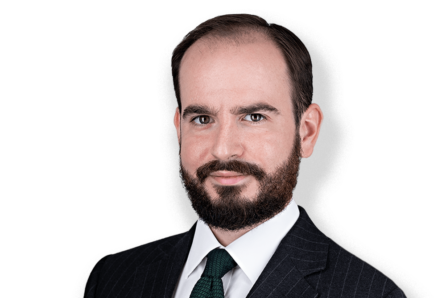3rd May 2022
Mrs Justice Ellenbogen has handed down her judgment in Longley v PPB Entertainment Limited & Ors [2022] EWHC 977 (QB), in which Kajetan Wandowicz appeared as sole counsel for the successful defendants. The judgment contains an analysis on whether a defence of unilateral mistake can be established on the basis of the claimant’s constructive knowledge of the mistaken defendant’s intention. This question, answered in the negative by the Singapore Court of Appeal but in English law still unresolved, has divided commentators and judges. While obiter on this point, the judgment in Longley provides the strongest judicial statement to date that in England, as in Singapore, nothing short of actual knowledge will suffice.
The Claimant, Mr Longley, telephoned the defendant bookmakers Paddy Power to place a bet on a horse at £1,300 each way; if the horse won, Mr Longley stood to win £28,600. Due to a mistake made by Paddy Power’s telephone operator when communicating internally with the risk managers (called “traders”), the bookmakers wrongly thought that Mr Longley wished to bet £13,000; if such a bet were won, it would bring Mr Longley the winnings of £286,000. Labouring under that misapprehension, Paddy Power considered the higher bet which it thought was being proposed, and decided to accept it. The operator then read back to Mr Longley the total stakes to be deducted from his betting account (which for the higher bet were £26,000, rather than the £2,600 that would have been deducted to place a bet at £1,300 each way), and Mr Longley confirmed that he was content to proceed.
The horse won, and Paddy Power paid to Mr Longley winnings for the lower bet only, on the grounds that this was the bet for which he had asked. Mr Longley sued for the difference, arguing that the bookmakers made him a counteroffer at the higher stake.
The Court found that:
(1) The claim failed at first hurdle, namely the objective construction of the words spoken between the parties. The operator’s words were a mere confirmation (in the event, incorrect) of the amount to be debited, and not a counteroffer of a different bet. The claim therefore had to be dismissed.
(2) Further, the defence of unilateral mistake would have succeeded, if it had arisen. Irrespective of the stakes, the bookmakers did not intend to offer to Mr Longley a bet, but to accept his bet, and Mr Longley knew that this was the case.
(3) Yet further, even if there had been a bet for the higher stake, the bookmakers were entitled to correct it on their system to the lower stake as they did. Paddy Power’s terms which allowed them to correct obvious human errors were not unfair within the meaning of the Consumer Rights Act 2015.
Given (1) the decision on the issue of construction, and (2) the finding of actual knowledge, the issue of constructive knowledge did not arise on the facts. Nevertheless, the Court considered the alternative basis on which Paddy Power’s defence of unilateral mistake was advanced, namely that if Mr Longley did not know that there was no intention to make him a counteroffer, at the very least he should have known that, and therefore had constructive knowledge of this fact. In order to establish that defence, Paddy Power argued that the decision of the Singapore Court of Appeal in Digilandmall.com misinterpreted the original English authorities and should not be followed in this jurisdiction. The Court disagreed and held that it would not have been enough to establish that any reasonable customer in Mr Longley’s shoes would have known that Paddy Power did not intend to propose a different bet. Whilst the discussion is obiter, the Court reviewed the authorities and commentary, and concluded that Digilandmall.com does represent the state of the law in England, and that unilateral mistake can only be established on the basis of actual knowledge. In so doing, the Court rejected the analysis of some leading English commentators, including Cartwright on Misrepresentation, Mistake and Non-Disclosure and Lord Burrows’s Restatement of the English Law of Contract.
The definite resolution of this debate will have to await a case in which the constructive knowledge point needs to be determined as part of the ratio decidendi. For the time being, however, Longley represents the most recent discussion of the issue in modern English case law, and the most direct rejection of the proposition that constructive knowledge suffices.
Kajetan Wandowicz appeared for the successful defendant bookmakers, instructed by Rhodri Smith, the Head of the Defendants’ in-house legal department.
Would you like to know more?
For help and advice talk to a member of our clerking team. They can advise on the best options for your matter.
Call: +44 (0) 20 7842 5555


